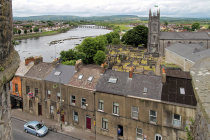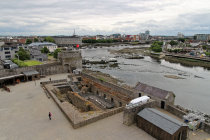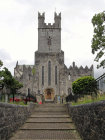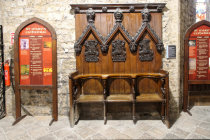
the Thomond Bridge connects King's Island with Limerick's mainland to the west
King John's Castel at low tide and on a cloudy day
Pope John Paul II visited Limerick in 1979
on our way to King John's Castle
the Shannon river has a tide of several meters
the Hunt Museum houses many artefacts and pieces of art
St Mary's Cathedral
and this is the view downstream
upstream view of the Shannon River
low tide at Ennis Road Bridge. To the left a glimpse of the 1916 memorial
Limerick is one of Ireland's larger cities. The town sits at the head of the
Shannon Estuary. Despite being 80 km away from
the Atlantic Ocean, there is a huge tide of up to 6 meters.
The first indication of a settlement at King's Island is
Ptolemy's map of Ireland from 150
AD. Vikings and later
Brian Boru set up camp here but it was the Normans that built Limerick from 1200 onwards.
The
17th century brought much violence and the city was besieged several times.
The
Treaty of Limerick ended hostilities,
and brought prosperous times during which the city center was transformed into the present day
Georgian look.
Economic decline set
in around 1950 and, although recovering, Limerick's GDP per capita is still lagging behind Ireland's average.
We were in
Limerick in June 2018.
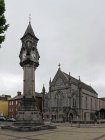
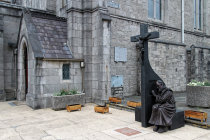
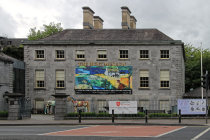
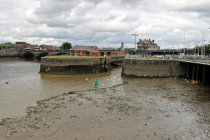
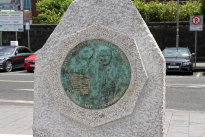
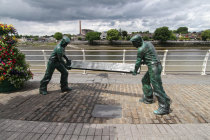
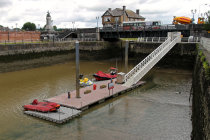
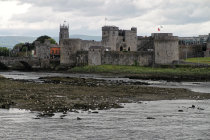
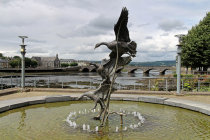
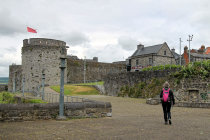
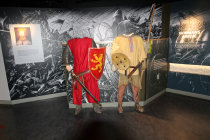
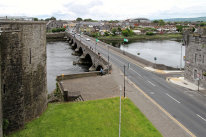





the Tait Memorial Clock Tower was erected in 1867




Padre Pio never made it to Limerick but he does have a monument at the St Savior's Dominican Church









the Docker's Monument commemorates the Limerick Dock Strike of 1913









the WIld Geese Monument for those that fled the town during the sieges





















St Mary's is known for the eleborately carved woodworks



inside the castle is an exhibition about its turbulent history
